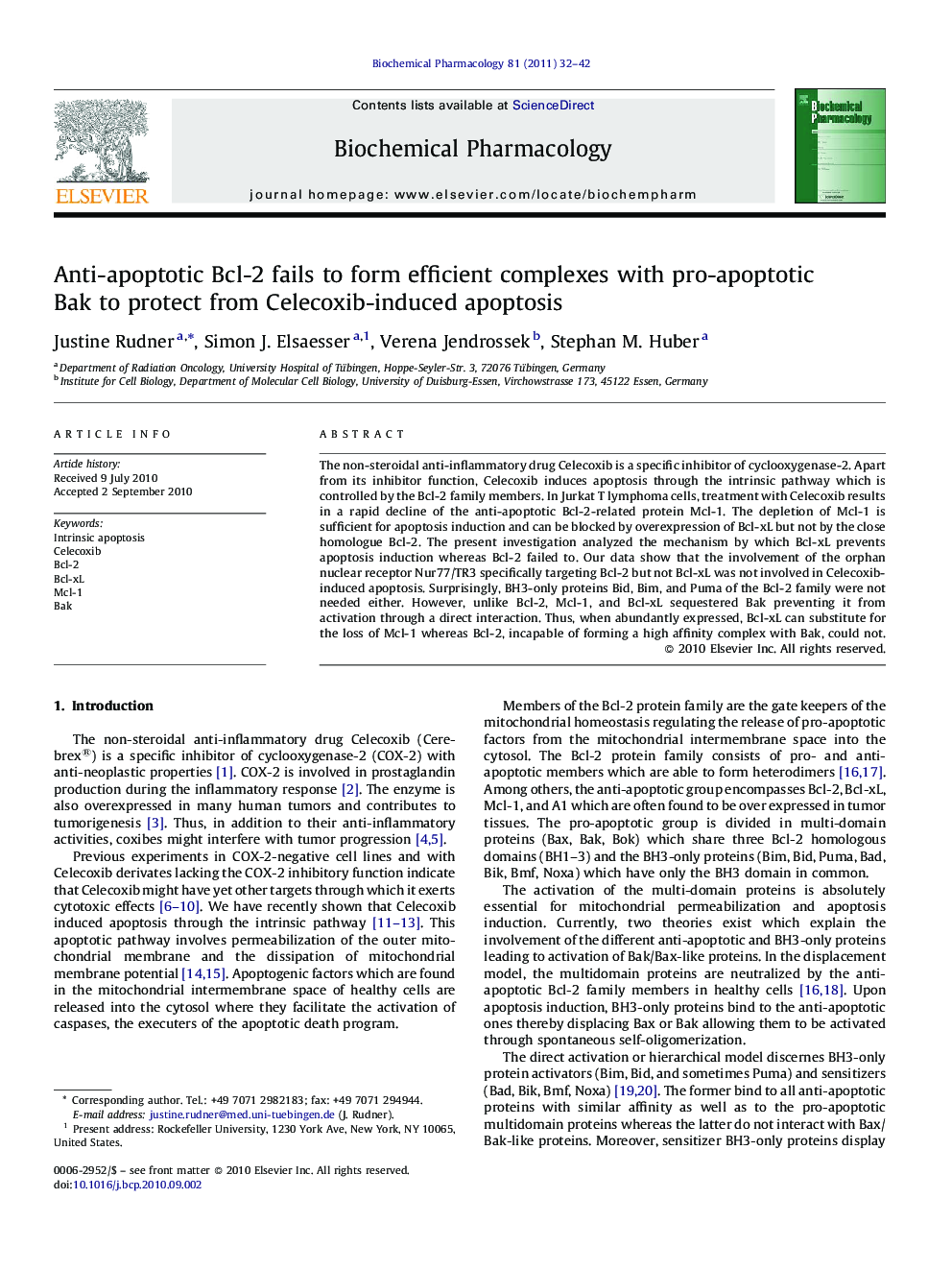| کد مقاله | کد نشریه | سال انتشار | مقاله انگلیسی | نسخه تمام متن |
|---|---|---|---|---|
| 2513054 | 1118390 | 2011 | 11 صفحه PDF | دانلود رایگان |

The non-steroidal anti-inflammatory drug Celecoxib is a specific inhibitor of cyclooxygenase-2. Apart from its inhibitor function, Celecoxib induces apoptosis through the intrinsic pathway which is controlled by the Bcl-2 family members. In Jurkat T lymphoma cells, treatment with Celecoxib results in a rapid decline of the anti-apoptotic Bcl-2-related protein Mcl-1. The depletion of Mcl-1 is sufficient for apoptosis induction and can be blocked by overexpression of Bcl-xL but not by the close homologue Bcl-2. The present investigation analyzed the mechanism by which Bcl-xL prevents apoptosis induction whereas Bcl-2 failed to. Our data show that the involvement of the orphan nuclear receptor Nur77/TR3 specifically targeting Bcl-2 but not Bcl-xL was not involved in Celecoxib-induced apoptosis. Surprisingly, BH3-only proteins Bid, Bim, and Puma of the Bcl-2 family were not needed either. However, unlike Bcl-2, Mcl-1, and Bcl-xL sequestered Bak preventing it from activation through a direct interaction. Thus, when abundantly expressed, Bcl-xL can substitute for the loss of Mcl-1 whereas Bcl-2, incapable of forming a high affinity complex with Bak, could not.
Figure optionsDownload as PowerPoint slide
Journal: Biochemical Pharmacology - Volume 81, Issue 1, 1 January 2011, Pages 32–42